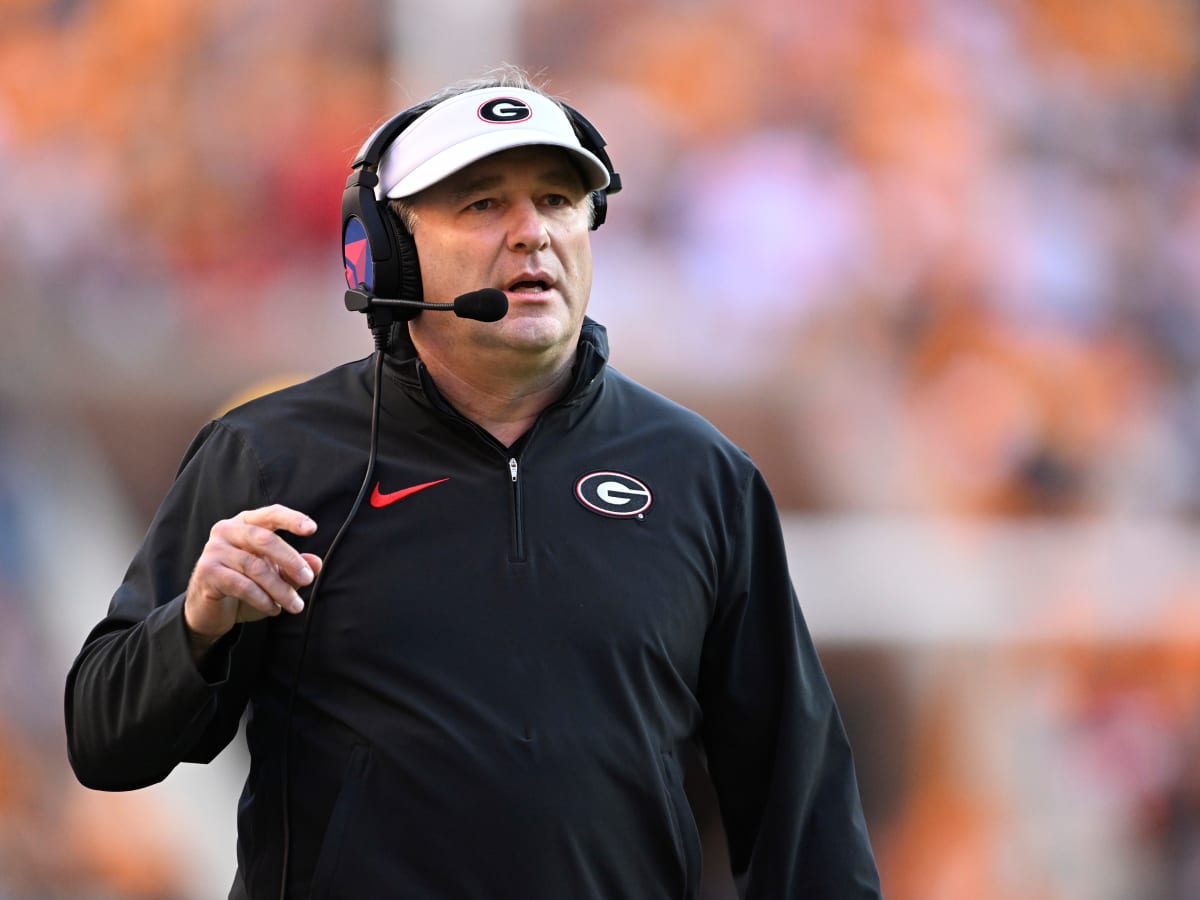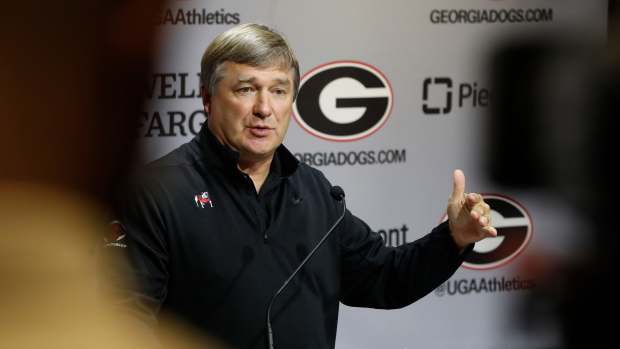Georgia’s Kirby Smart Speaks Out Against College Football Playoff Rankings: A Call for Change…
In a bold statement that has stirred conversation across the college football landscape, Georgia Bulldogs head coach Kirby Smart expressed his dissatisfaction with the current College Football Playoff (CFP) rankings, arguing that the system does not properly reward teams for their performance on the field and fails to consider the full context of a season.
The CFP rankings, which are released weekly by a selection committee, have become one of the most anticipated and scrutinized aspects of the college football season. Teams in the Power Five conferences and other strong programs vie for one of the coveted four spots in the playoff, which ultimately determines the national champion. However, these rankings often lead to fierce debates about which teams deserve a playoff spot, especially in years with many worthy contenders.
Kirby Smart, whose Georgia Bulldogs have consistently been one of the top teams in the country under his leadership, spoke out against the way the rankings are being formulated and how they impact teams across the country. At a press conference earlier this week, Smart argued that the system’s current methodology and criteria for ranking teams fail to reflect the true strength of teams and their respective schedules.
“We’ve got to understand that the people who are voting in these rankings aren’t necessarily watching all the games,” Smart said. “They look at certain metrics and stats, but you can’t judge a football team on just a few numbers. There’s so much more that goes into the story of a season—strength of schedule, injuries, the context of certain games, and how teams improve over the course of the year. It’s frustrating to see certain teams get knocked down or up based on one or two games when the entire body of work should be what matters most.”
Smart’s comments come amid growing tension over the College Football Playoff system, with fans, analysts, and coaches across the country voicing concerns over the selection process. One of the most contentious points of debate has been the perceived bias towards teams from power conferences, particularly those in the Southeastern Conference (SEC), where Georgia resides. Despite the Bulldogs’ long-standing success, Smart has pointed out that teams from other conferences often benefit from a perceived favoritism when it comes to rankings.
For example, earlier this season, Georgia, despite being the defending national champions and boasting one of the most dominant teams in college football, was placed lower than expected in the initial CFP rankings. This has raised eyebrows, particularly when compared to teams with easier schedules or weaker competition. Smart’s frustrations have also been echoed by other coaches and players, who argue that the playoff system should reward teams based on their overall performance, rather than just strength of schedule or specific marquee victories.
“We’re not asking for a favor, we’re asking for fairness,” Smart continued. “Teams should be evaluated based on their full season, not just who they beat, or where they played. We’ve seen teams get penalized for playing tough schedules, or even for losing a game in a conference championship. A single loss shouldn’t be the end of your playoff hopes, especially when that loss comes against a top-tier team. We need to look at the bigger picture.”
The Georgia head coach also pointed to how the committee handles conference championships in their rankings. He criticized the notion that a team that wins its conference, but has a loss or two, is sometimes given less weight than an undefeated team that hasn’t faced as much competition.

“I understand the desire to see undefeated teams in the playoff,” he said, “but just because a team is undefeated doesn’t mean they’re the best team. Some of those teams haven’t faced the same kind of challenges that others have. A team that loses one game but dominates their conference should not be punished for that.”
There is also the issue of rankings at the tail end of the season. The last few weeks before the final CFP rankings are released, teams in contention for the playoff often have little control over their fate, as they must rely on other teams’ results and the whims of the selection committee. Smart expressed concerns about this lack of control, emphasizing that it creates an unnecessary level of stress for players and coaches.
“We should be putting teams in the playoff based on what they’ve done on the field,” Smart remarked. “It’s not about a committee picking who they think is the best team, it’s about giving the best teams the chance to prove it in the playoff. The rankings should be a reflection of that.”
Despite his frustrations, Kirby Smart remains committed to the goal of improving the system and working within the current framework. He has repeatedly stated that he’s not advocating for any specific team, but for a system that better rewards consistency, competitiveness, and overall team strength. His criticisms come as a broader conversation around the future of college football’s playoff system gains traction.
There is growing momentum for the expansion of the College Football Playoff, with discussions centered around increasing the number of teams that make it into the postseason. Many believe that an expanded playoff would alleviate some of the concerns Smart has raised, by giving more teams the opportunity to prove their worth on the field, rather than being judged by a selection committee.
The College Football Playoff’s future, however, remains uncertain. While the current system is set to continue for the next few years, Smart’s comments serve as a reminder that the quest for fairness in college football is far from over. Coaches, players, and fans alike will continue to watch closely as the CFP evolves in response to growing pressure to make the selection process more transparent and equitable.
As the season progresses and the final rankings come into focus, it remains to be seen how the CFP committee will respond to calls for change. For now, Kirby Smart and the Georgia Bulldogs will focus on their own path, but it’s clear that Smart’s call for a more just and comprehensive system is gaining momentum in the broader conversation about college football’s postseason future.














